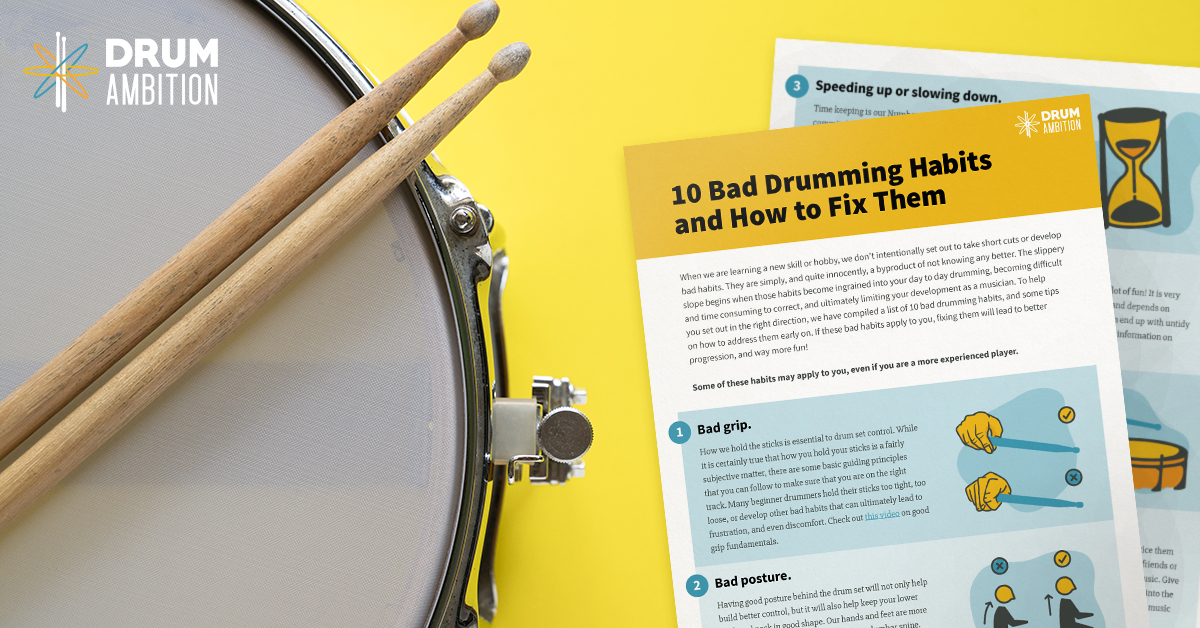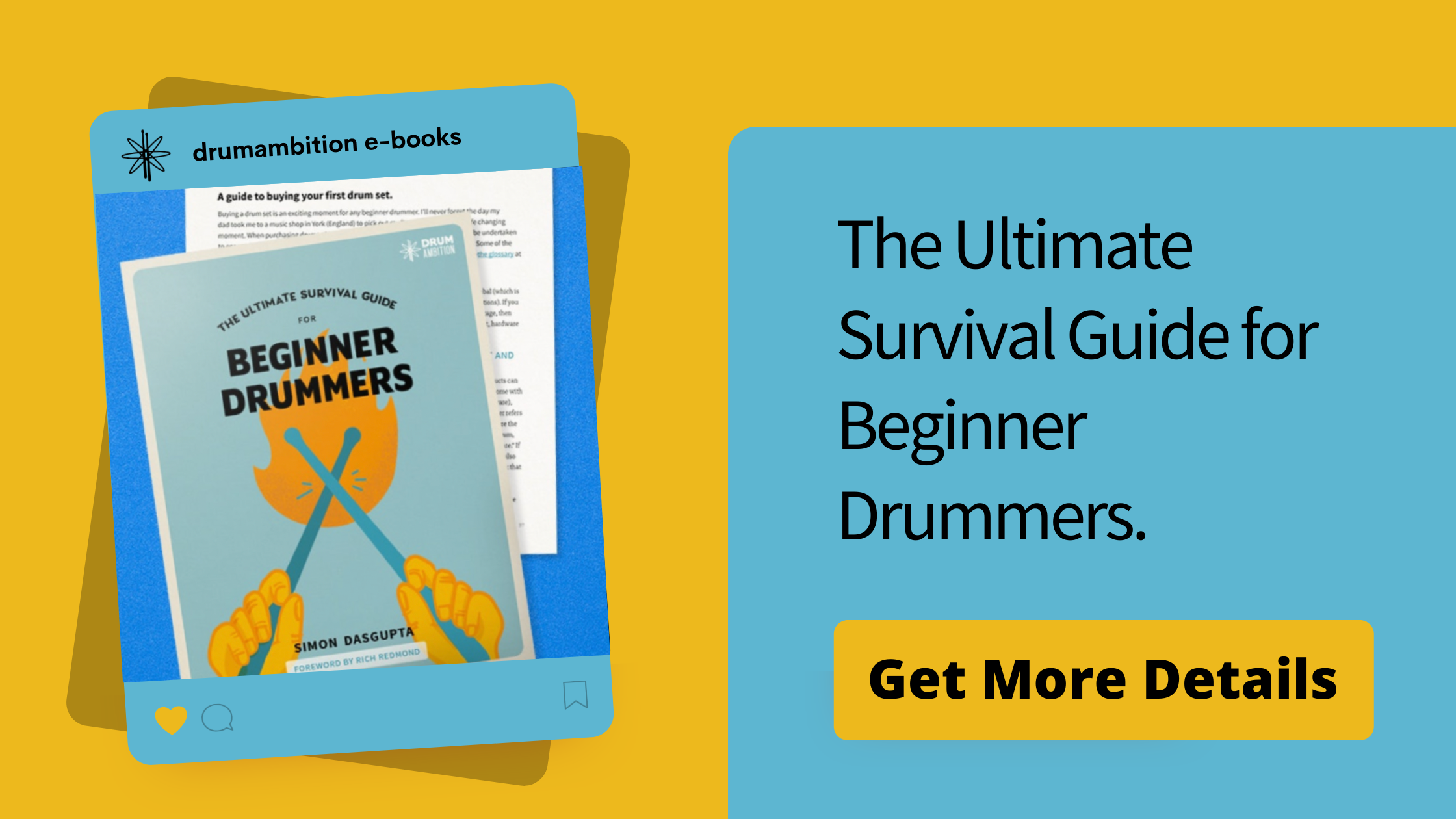When practicing the drums, do you struggle to balance fun practice and effective task-orientated practice? Ideally, an element of both is a great idea.
With 2022 just around the corner, our thoughts can often turn to customary new year's resolutions. For beginner and hobbyist drummers, that can mean a conscious decision to practice more. Like any musical instrument, practice is the key to improvement and vital to long-term success. Don't worry or be downhearted if you are not where you are hoping to be. Revisiting your practice routine can change that and change it quickly. At the same time, don't stress out if your available practice time is at a premium. Just 5-10 minutes of focused practice per day can produce some impressive results.
Helpful related articles:
One video every beginner drummer should watch.
How much should I practice? 5 tips for successful development.
We've written extensively on practice in other articles, but in this feature, we want to emphasize the difference between practice and smart practice and why "noodling" is just as important. Let's face it, we all lead hectic lives, and getting behind the drum set can be challenging daily. So when you do get the time to play, it's essential to make it count.
What is smart practice?
Smart practice is a straightforward and practical approach. It just means that you allot 5-10 minutes of your overall session to whatever concept you are working on at the time. For example, if you are working on Drum Ambition Lesson 1, then make sure that you dedicate at least 5 minutes of your daily practice session to this one topic. After a week, you are going to notice a big difference.
So, where does "noodling" fit in, and is that even a word?
Noodling Definition 1. Source: Urban Dictionary.
A form of fishing in which a crazy person runs into a lake and searches for holes on the bottom with his foot. Then he inserts his finger into the hole and lets something bite it. Hopefully, it's a catfish. If so, he wrestles the catfish to the surface and drags it to shore. If it's not a catfish, he may lose his finger to a snapping turtle or his life to a water moccasin.
Noodling Definition 2. Source: Google.
(informal)
Improvise or play casually on a musical instrument.
We found both definitions helpful. Of course, we musicians associate "noodling" with the second example courtesy of our friends at Google, but the first has some interesting and amusing parallels. The catfish seeker is hoping to achieve his goal by randomly trying an unscientific technique and essentially hoping for the best. He may achieve his goal; he may die, albeit in the most extreme case.
Noodling on the drums, believe it or not, is somewhat similar. Random and, let's face it, often elating "stab in the dark" improvisation can lead to some exciting discoveries, as well as being a lot of fun. At worst, you'll make a few mistakes - you certainly won't die unless you happen to be a drummer for Spinal Tap. (If you are not familiar, do yourself a favor and look it up). And by the way, contrary to common belief, making mistakes is a good thing, especially when you are learning. Noodling is essential because it's fun. The moment you lose the fun element in your practice and playing, your drumming adventure can be over before it even starts.
Balancing both approaches is a good idea.
The key to success is to balance the noodling with smart practice. You got into drumming for your reasons - most likely feeding your creative side, learning a new skill, but most importantly, having a fun, engaging, and rewarding hobby. Balancing your practice can make sure that you attain your goals and progress at a comfortable rate while having a great time and enjoying the experience.
Knowing what to practice is always an advantage.
At Drum Ambition, all of our lessons feature practice recommendations, so you never get stuck on what to practice. Regardless of your chosen plan, help is always available. Try our free lessons to see if we are a good fit, and remember that all plans come with our Happiness Guarantee.
We are here to help.
If you have any questions about this article, please feel free to email [email protected].



